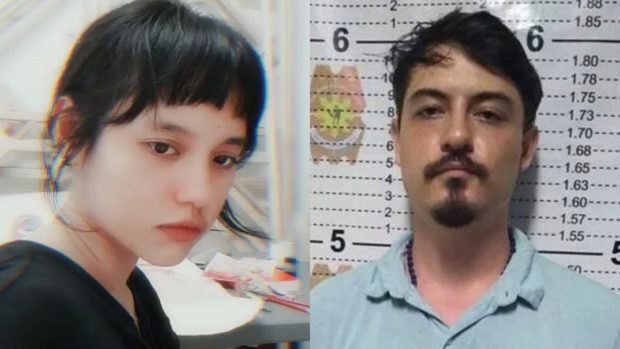Julian Ongpin asks DOJ to dismiss drug complaint

Bree Jonson (left) and Julian Ongpin—Screenshot From @breejonson/Instagram Video; Photo Courtesy of Philippine National Police-PRO1
MANILA, Philippines — Julian Roberto Ongpin, a person of interest in the death of young visual artist Breanna “Bree” Jonson, has asked the Department of Justice (DOJ) to dismiss the complaint and recommendation of arrest against him for possession of illegal drugs.
Ongpin’s lawyer, Dennis Manalo, in a petition for review filed on Nov. 3, asked that the DOJ reverse and set aside the ruling of the panel of prosecutors, who found him liable for illegal possession of dangerous drugs in violation of Republic Act No. 9165, or the Comprehensive Dangerous Drugs Act of 2002.
He also sought the withdrawal of the information filed against him by the panel before the San Fernando City, La Union Regional Trial Court Branch 27, as well as the lifting of the Precautionary Hold Departure Order issued against him by the said court.
Ongpin, the son of businessman and former trade minister Roberto Ongpin, has been tagged as a person of interest in the controversial death of Jonson, who was found unconscious on Sept. 18 inside the bathroom of the hostel room they had rented in the surfing town of San Juan, La Union province.
The young Ongpin told police investigators that the painter had taken her own life, a claim that Jonson’s family vigorously disputed.
Article continues after this advertisementThe DOJ had indicted Ongpin for possession of illegal drugs on the heels of the investigation of Jonson’s death. Local police reported finding drugs in the room Jonson had shared with Ongpin.
Article continues after this advertisementBut Ongpin’s lawyer said “the panel had no evidence to support its findings” that his client was in possession of cocaine, a prohibited drug.
“The evidence relied upon by the panel does not establish probable cause that respondent-appellant was in possession of the subject drugs,” the petition reads.
In the criminal complaint, the Philippine National Police said the pouch was found by investigators between two beds in the room along with a bath towel, a blanket and pillow.
Onpin’s petition stated that even the panel “conceded that the subject drugs were not in the ‘actual possession’ of the respondent-appellant,” but still it “jumped to the conclusion that the subject drugs were in the ‘constructive possession’ of the respondent-appellant.”
“Indeed, the panel was unable to cite any evidence that the respondent-appellant is the owner, custodian or possessor, of the black pouch, brown pouch, or white pouch or bag, where the subject drugs were supposedly ‘recovered,’” it added.
Ongpin attached in his petition some photos taken during the crime scene investigation, as he stressed that the alleged drugs were in a bag that contained medication in the name of a “Breanna Patricia Agunod,” who was later identified as Jonson.
“Further, a closer look at the Soco’s (scene of the crime operatives) picture[s] show that there is a Philippine passport among the items recovered with the subject drugs,” he added.
Ongpin stressed that had the said passport been opened, it would have revealed the true identity of the person who owns the bag.
“Certainly, it would not be respondent-appellant as his passport was not among the items recovered at the scene,” the petition said.